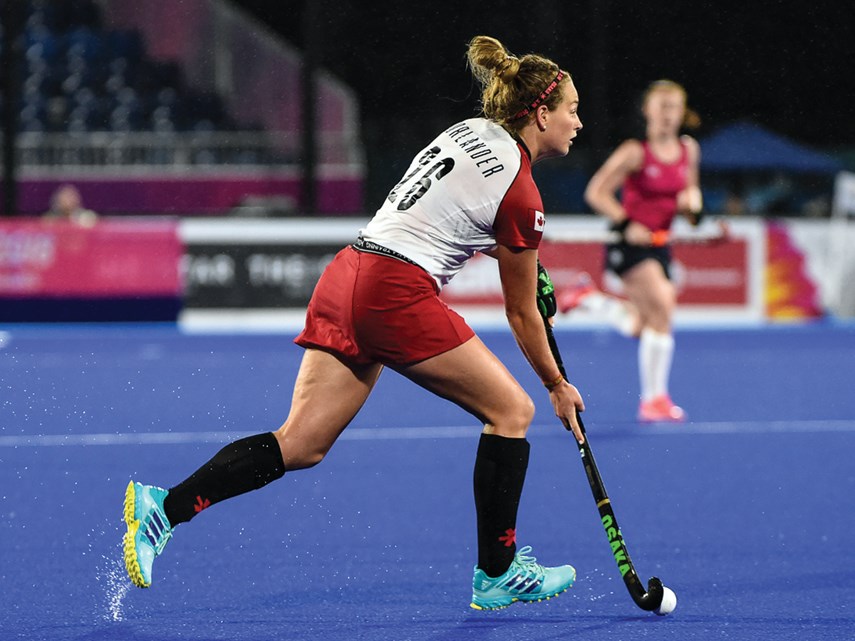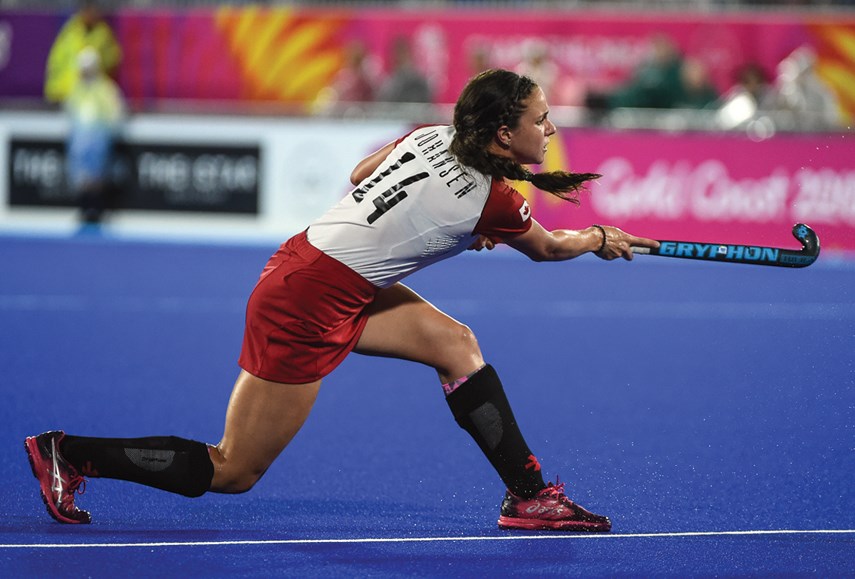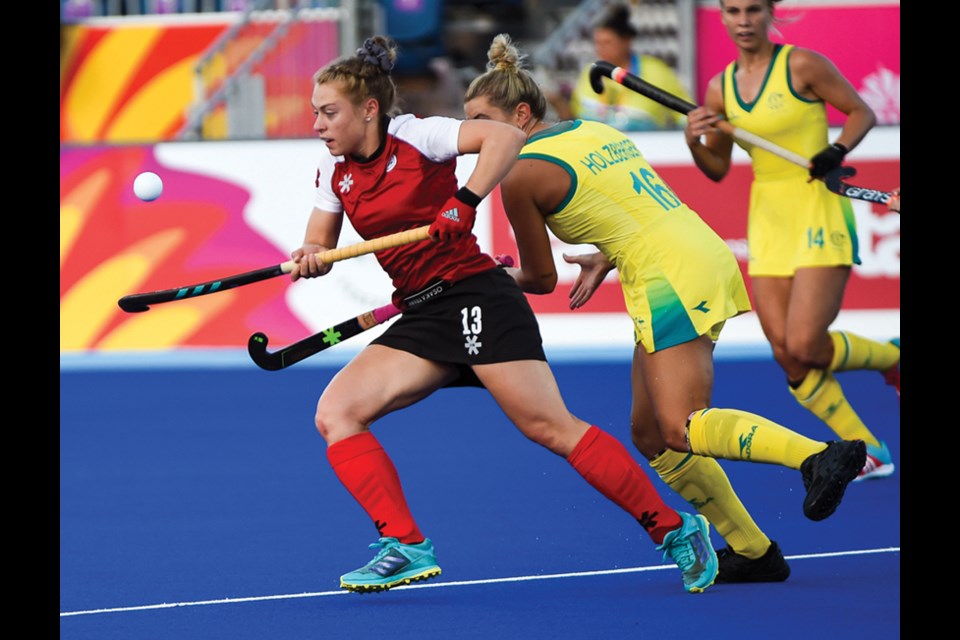Hannah Haughn remembers exactly what it was like to pack up her life and move to Europe with 21 other players from Canada’s national women’s field hockey team.
“It was definitely scary for me,” she said on the phone from a small town just outside of Antwerp, Belgium last week. “I grew up in Vancouver and that was where home base was up until recently. To move away from my really big support network and quit my job and move away from my significant other was really difficult. I had no idea what to expect, what the living conditions would be like here.”
The move arose out of a challenging situation for the team, which also includes North Shore stars Stephanie Norlander, Karli Johansen, Rachel Donohoe and Holly Stewart. All five are North Shore high school grads and products of the highly successful programs run by West Vancouver Field Hockey Club. The national team recently lost its government funding, dropped from the Own the Podium program which allocates funds based on past performances and future potential.
“It was pretty devastating for us,” said Haughn of losing their funding. The team is united in a goal to make the Olympic Games for the first time since 1992, but now must do so with little financial backing.

A plan was hatched last year that would both alleviate some of the financial pressure on the players while also helping them take their game to the next level. That’s why, last August, the entire team moved to Europe to play for semi-pro teams located across Belgium and the Netherlands. The move allowed them to play high-level games consistently with their European club teams while also getting together every week to train together as a national team. It also took some financial pressure off, as many of the European clubs pay for some expenses such as housing and food, plus monthly stipends for their players. And the plan, in some ways, is working very well. The team played 36 international games in 2018, including matchups against eight of the top-10 ranked countries in the world, and lost only three of them.
“I think the move here has been really pivotal,” said Haughn. “It has allowed us to play a lot of games, and playing in the league here has been great for our development as athletes as well. Field hockey in Canada is smaller, the leagues there just aren’t as strong as in Belgium and the Netherlands.”
It isn’t a European vacation though. The players are on the field at least six days a week, anywhere from two to eight hours per day.
“It seems kind of glamourous to be over in Europe living and training, but most of us barely ever leave the field,” said Haughn. “It’s definitely been a commitment, and that’s really what it takes to get to the next level. We’re all for it.”
It still might not be enough though. The wins are piling up, but so are the bills. Haughn said players have had to pay out-of-pocket for any tours the team takes, and they will again be on the hook for expenses related to Olympic qualification tournaments later this year. “That financial burden makes it really difficult to maintain our motivation,” said Haughn. “But at the same time we have been improving steadily over the past five years, and to kind of give up after all that we’ve been through over the past five years would really be a disservice to all that hard work.”

The numbers are so tight that, though she hates to admit it, Haughn knows there’s a chance they may need to pull the plug before this Olympic task is completed.
“It’s definitely a scary possibility for us at the moment,” she said. “We still have a few months to raise money for our qualification tour, so we’re remaining hopeful, but we’re spending every waking moment when we’re not on the field contacting people, sending emails and that kind of thing to rally everyone around us.”
It’s been a battle, but Haughn is firm in her belief that it will all be worth it.
“If I didn’t think it was worth it, I wouldn’t be here,” she said. “Everyone else feels the same way. We’re really improving, and it’s really exciting to see what we’ve been practicing come into play in the games, and having such great results over the summer and into the new year.”
And what would it feel like to end a 28-year Olympic drought?
“It would really mean everything to us,” said Haughn. “But not only to us, who have given so much, but to field hockey in Canada. We all know that we are role models for athletes back home, and to be able to provide them with that opportunity to see us on that world stage and to give them something to strive for … to have that chance would be really unbelievable. We’re working hard to make everyone proud back home for sure.”
To help them get to the finish line, the team has started a crowdfunding campaign. Details can be found here.



